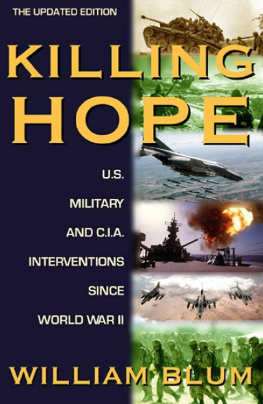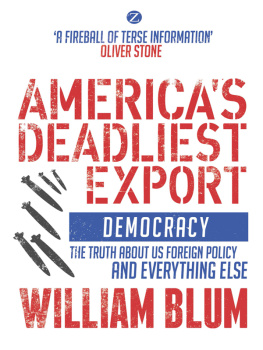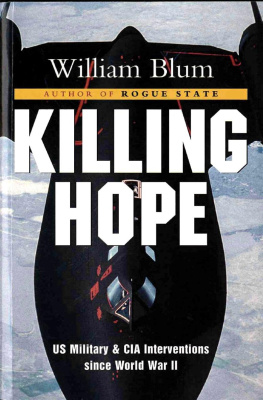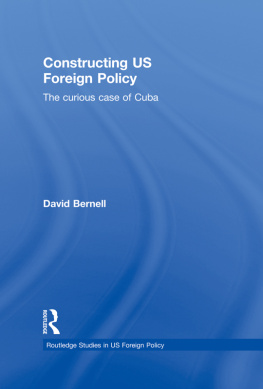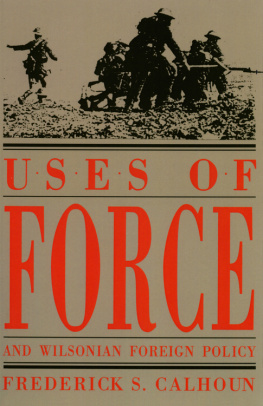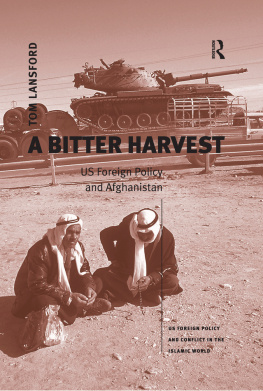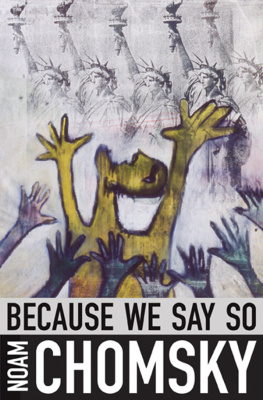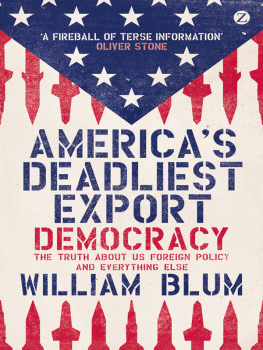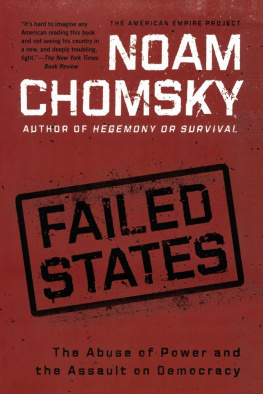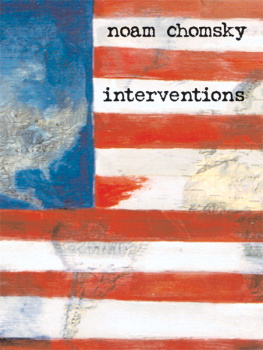
Copyright William Blum 2004
All rights reserved.
Cover design by Matt Wuerker and Erica Bjerning
Library of Congress Cataloging-in-Publication Data is available from the publisher on request.
ISBN: 978-1-56751-252-6 paper
ISBN 1-56751-253-4 cloth
ISBN: 978-1-56751-409-4 ebook
Updated from the 1995 edition, which was in turn a revised and expanded version of The CIA, A Forgotten History , published in 1986 by Zed Books, London. The 1995 edition of Killing Hope went through six printings.
Common Courage Press
P.O. Box 702
Monroe, ME 04951
207-525-0900 fax: 207-525-3068
www.commoncouragepress.com
Second Edition, Fifth printing 2012
Contents
In addition to those described in this book, accounts of many other serious American post-World War II interventions can be found in another book by William Blum, Rogue State: A Guide to the Worlds Only Superpower , , although not in the rich detail found in the present book.
January 2005
Excerpts from the Introduction, 1987 edition
A brief history of the Cold War and anti-communism
Our fear that communism might someday take over most of the world blinds us to the fact that anti-communism already has.
Michael Parenti
It was in the early days of the fighting in Vietnam that a Vietcong officer said to his American prisoner: You were our heroes after the War. We read American books and saw American films, and a common phrase in those days was to be as rich and as wise as an American. What happened?
An American might have been asked something similar by a Guatemalan, an Indonesian or a Cuban during the ten years previous, or by a Uruguayan, a Chilean or a Greek in the decade subsequent. The remarkable international goodwill and credibility enjoyed by the United States at the close of the Second World War was dissipated country by country, intervention by intervention. The opportunity to build the war-ravaged world anew, to lay the foundations for peace, prosperity and justice, collapsed under the awful weight of anti-communism.
The weight had been accumulating for some time; indeed, since Day One of the Russian Revolution. By the summer of 1918 some 13,000 American troops could be found in the newly-born state, the future Union of Soviet Socialist Republics. Two years and thousands of casualties later, the American troops left, having failed in their mission to strangle at its birth the Bolshevik state, as Winston Churchill put it.
The young Churchill was Great Britains Minister for War and Air during this period. Increasingly, it was he who directed the invasion of the Soviet Union by the Allies (Great Britain, the US, France, Japan and several other nations) on the side of the counter-revolutionary White Army. Years later, Churchill the historian was to record his views of this singular affair for posterity:
Were they [the Allies] at war with Soviet Russia? Certainly not; but they shot Soviet Russians at sight. They stood as invaders on Russian soil. They armed the enemies of the Soviet Government. They blockaded its ports, and sunk its battleships. They earnestly desired and schemed its downfall. But warshocking! Interferenceshame! It was, they repeated, a matter of indifference to them how Russians settled their own internal affairs. They were impartialBang!
What was there about this Bolshevik Revolution that so alarmed the most powerful nations in the world? What drove them to invade a land whose soldiers had recently fought alongside them for over three years and suffered more casualties than any other country on either side of the World War?
The Bolsheviks had had the audacity to make a separate peace with Germany in order to take leave of a war they regarded as imperialist and not in any way their war, and to try and rebuild a terribly weary and devastated Russia. But the Bolsheviks had displayed the far greater audacity of overthrowing a capitalist- feudal system and proclaiming the first socialist state in the history of the world. This was uppityness writ incredibly large. This was the crime the Allies had to punish, the virus which had to be eradicated lest it spread to their own people.
The invasion did not achieve its immediate purpose, but its consequences were nonetheless profound and persist to the present day. Professor D.F. Fleming, the Vanderbilt University historian of the Cold War, has noted:
For the American people the cosmic tragedy of the interventions in Russia does not exist, or it was an unimportant incident long forgotten. But for the Soviet peoples and their leaders the period was a time of endless killing, of looting and rapine, of plague and famine, of measureless suffering for scores of millionsan experience burned into the very soul of a nation, not to be forgotten for many generations, if ever. Also for many years the harsh Soviet regimentations could all be justified by fear that the capitalist powers would be back to finish the job. It is not strange that in his address in New York, September 17, 1959, Premier Khrushchev should remind us of the interventions, the time you sent your troops to quell the revolution, as he put it.
In what could be taken as a portent of superpower insensitivity, a 1920 Pentagon report on the intervention reads: This expedition affords one of the finest examples in history of honorable, unselfish dealings under very difficult circumstances to be helpful to a people struggling to achieve a new liberty.
History does not tell us what a Soviet Union, allowed to develop in a normal way of its own choosing, would look like today. We do know, however, the nature of a Soviet Union attacked in its cradle, raised alone in an extremely hostile world, and, when it managed to survive to adulthood, overrun by the Nazi war machine with the blessings of the Western powers. The resulting insecurities and fears have inevitably led to deformities of character not unlike that found in an individual raised in a similar life-threatening manner.
We in the West are never allowed to forget the political shortcomings (real and bogus) of the Soviet Union; at the same time we are never reminded of the history which lies behind it. The anti-communist propaganda campaign began even earlier than the military intervention. Before the year 1918 was over, expressions in the vein of Red Peril, the Bolshevik assault on civilization, and menace to world by Reds is seen had become commonplace in the pages of the New York Times.
During February and March 1919, a US Senate Judiciary Subcommittee held hearings before which many Bolshevik horror stories were presented. The character of some of the testimony can be gauged by the headline in the usually sedate Times of 12 February 1919:
DESCRIBE HORRORS UNDER RED RULE. R.E. SIMONS AND W.W. WELSH TELL SENATORS OF BRUTALITIES OF BOLSHEVIKISTRIP WOMEN IN STREETSPEOPLE OF EVERY CLASS EXCEPT THE SCUM SUBJECTED TO VIOLENCE BY MOBS.
Historian Frederick Lewis Schuman has written: The net result of these hearings was to picture Soviet Russia as a kind of bedlam inhabited by abject slaves completely at the mercy of an organization of homicidal maniacs whose purpose was to destroy all traces of civilization and carry the nation back to barbarism.
Literally no story about the Bolsheviks was too contrived, too bizarre, too grotesque, or too perverted to be printed and widely believedfrom women being nationalized to babies being eaten (as the early pagans believed the Christians guilty of devouring their children; the same was believed of the Jews in the Middle Ages). The story about women with
By the end of 1919, when the defeat of the Allies and the White Army appeared likely, the New York Times treated its readers to headlines and stories such as the following:
Next page
